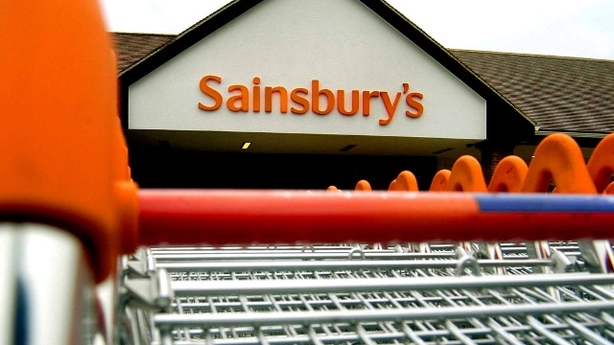Sainsbury's, Britain's second largest supermarket group, said today that food inflation was starting to fall as a return to volume growth helped power a 9.8% rise in quarterly underlying sales.
The group, which has a 15% share of Britain's grocery market, also maintained guidance for a 2023-24 underlying pretax profit of £640-700m compared to £690m in 2022-23.
Trading conditions in the 16 weeks to June 24, its first quarter, were dominated by high inflation, which has become a major political issue in Britain as it outstrips pay growth at a time of rising interest rates.
This continues to put household budgets under strain.
UK food and drink inflation was 18.3% in May according to the most recent official data, and 14.6% in June according to the most recent industry data.
"Food inflation is starting to fall and we are fully committed to passing on savings to our customers," Sainsbury's CEO Simon Roberts said, pointing to £60m in lower prices since March.
"Prices on our top 100 selling products are now lower than they were in March, against a market where prices have gone up," he said.
Grocery sales rose 11% in the quarter, and general merchandise sales were up 4%. However, clothing sales fell 3.7%.
Sainsbury's is having to balance the increased cost of products from suppliers with trying to prevent shoppers switching to discounters Aldi and Lidl.
It is price matching Aldi on hundreds of items and leveraging its Nectar loyalty scheme.
Last month, market leader Tesco, reported a 9% rise in first-quarter underlying UK sales and said food inflation had peaked.
All of Britain's major grocers have recently cut prices of some staple products.

The supermarkets have been accused by trade unions and some politicians of profiteering by being too slow in passing on falls in global commodity prices to consumers - a charge they reject.
Governments across Europe are struggling with high inflation. Last month, the French government secured a pledge from 75 top food companies to cut prices on hundreds of products, while Hungary's government has imposed mandatory price cuts.
While the UK government has raised concerns about the surge in food prices it says it is not considering imposing price caps.
Meanwhile, Sainsbury's has not seen any rise in bad debt at its banking business since its last update in April, its chief financial officer said today, when asked about signs of consumer distress given Britain's tough economic situation.
"The bank is performing in line with our expectations," CFO Blathnaid Bergin told reporters.
"We have not seen anything new on bad debt," she added.

